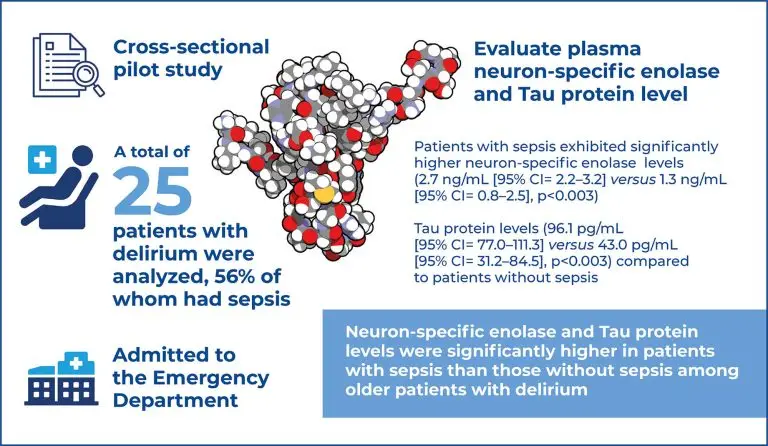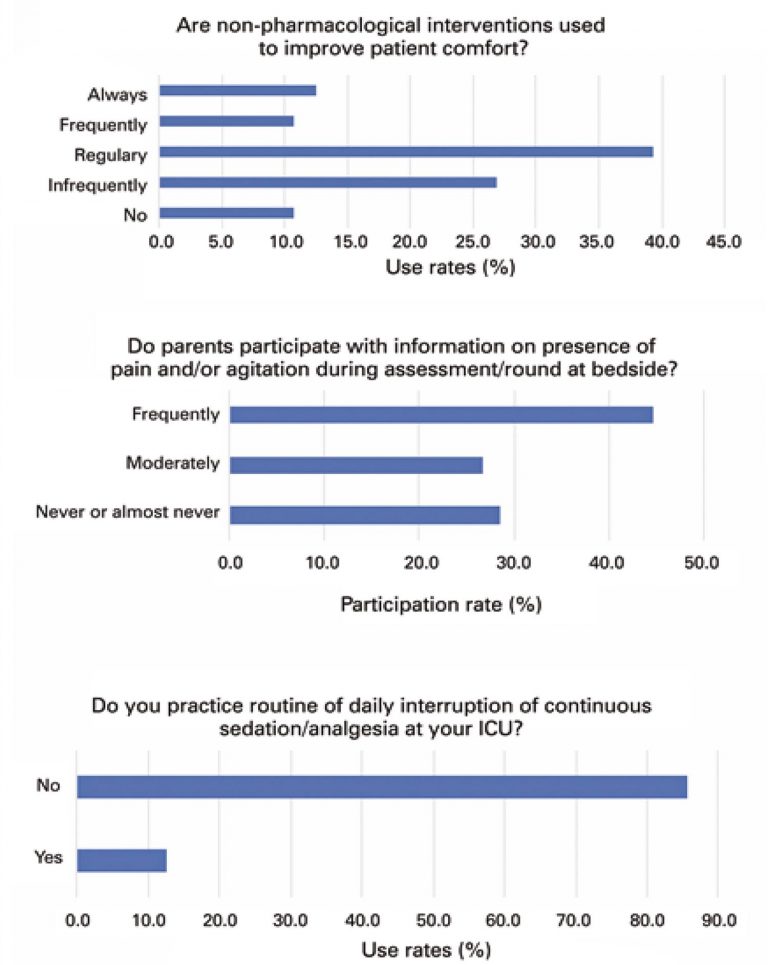2 results
28/Mar/2025
28/Mar/2025
DOI: 10.31744/einstein_journal/2025AO1244
Highlights ■ Biomarkers of brain injury, such as neuron-specific enolase and Tau proteins, are higher in older patients with sepsis and delirium. ■ Diagnosing sepsis in patients with delirium can be challenging. ■ Early identification of sepsis is key to managing sepsisassociated delirium. ABSTRACT Objective: Sepsis-associated delirium is a common cerebral manifestation in patients with sepsis, potentially caused by a combination of neuroinflammation and other neurophysiological disorders. This study investigated the expression of neuron-specific enolase and Tau protein as biomarkers […]
Keywords: Biomarkers; Delirium; Emergency medicine; Neuroinflammatory diseases; Sepsis
22/Jan/2020
DOI: 10.31744/einstein_journal/2020AO5168
ABSTRACT Objective To understand the use of tools, protocols and comfort measures related to sedation/analgesia, and to screen the occurrence of delirium in pediatric intensive care units. Methods A survey with 14 questions was distributed by e-mail to Brazilian critical care pediatricians. Eight questions addressed physician and hospital demographics, and six inquired practices to assess sedation, analgesia, and delirium in pediatric intensive care units. Results Of 373 questionnaires sent, 61 were answered (16.3%). The majority of physicians were practicing in […]
Keywords: Analgesia; Brazil; Child; Critical care; Deep sedation; Delirium; Surveys and questionnaires


